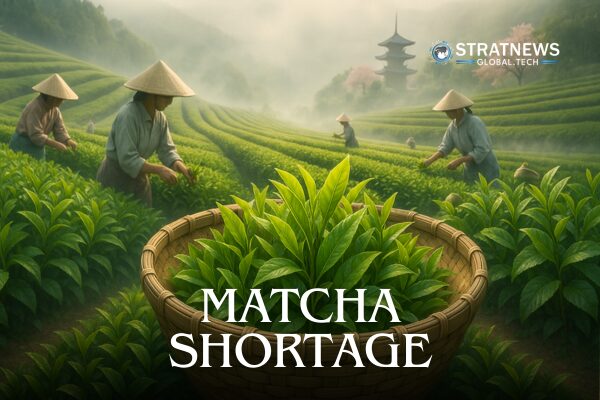Record Heat Cuts Matcha Harvest in Kyoto
Matcha lovers may need to prepare for higher prices. Record temperatures in Japan have reduced matcha green tea production this year. This is pushing prices to record highs as global demand for the trendy beverage keeps rising.
The Kyoto region, producing about a quarter of Japan’s tencha, faced severe heatwaves last summer. Japan recorded its hottest year, and the extreme heat damaged tea bushes. This led to a weaker harvest during the April-May season.
Masahiro Yoshida, a sixth-generation farmer in Uji, reported harvesting only 1.5 tons of tencha this year. This was down from his usual two tons. “Last summer was so hot that it damaged the bushes, so we could not pluck as many tea leaves,” he said.
Global Demand Booms While Supplies Tighten
Matcha has gained popularity among millennials and Gen Z buyers seeking healthier drinks. Cafes worldwide now offer matcha lattes, smoothies and desserts, driving up demand. Matcha is valued for its antioxidants and higher caffeine levels than other green teas.
Viral trends on social media last year boosted demand further. Singapore-based wholesaler Tealife even imposed purchase limits to manage shortages. Founder Yuki Ishii said matcha demand grew tenfold last year and continues to rise, while supply from Japan declines.
Japan’s green tea exports, including matcha, rose by 25% in value to 36.4 billion yen ($252 million) last year, with a 16% increase in export volume. However, the Japanese Tea Production Association expects lower matcha output this year due to the poor harvest.
Prices Hit Record Highs Amid Growing Shortage
Tencha prices have reached new records. A May auction in Kyoto saw prices rise to 8,235 yen per kg, up 170% from a year ago, and far above the previous record of 4,862 yen in 2016.
Producers are trying to increase matcha output to meet demand. However, new tea fields require five years before they can be harvested, limiting immediate relief for the shortage. Marc Falzon, who runs the New Jersey-based milling firm Ooika Co, said many had hoped for a better harvest this year to ease shortages, but this has not happened.
“I suspect we will see even more dramatic price increases,” he said.
With global demand for the herbal supplement continuing to grow, consumers may need to adjust to higher prices in cafes and stores worldwide as Japan’s matcha supplies tighten.
with inputs from Reuters


